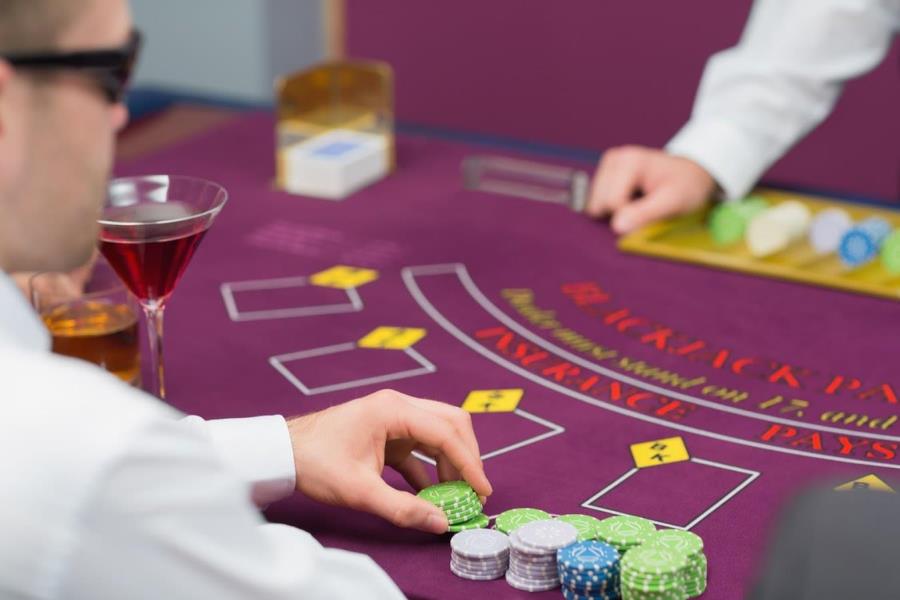Gambling is a popular pastime enjoyed by many, but it can also have an impact on psychological health. This article will explore the odds and outcomes of gambling, and how it affects people’s mental wellbeing.
It will delve into the various aspects of gambling including its motivations, risks, rewards, and long-term implications. We’ll examine how our brains respond to different forms of risk-taking to understand why some individuals find gambling so appealing, as well as look at what happens when things turn sour.
Finally, we shall consider strategies for managing addiction or harm reduction if required – all with a focus on promoting good mental health.
The Prevalence of Problem Gambling in Society
Problem gambling has become a major issue in today’s society. It affects people from all walks of life, regardless of age, gender, race, or economic status.
The prevalence of problem gambling is increasing as more and more people turn to it for entertainment and financial gain. Gambling can have serious psychological implications for individuals who are unable to control their urge to gamble, leading to depression, anxiety, and even suicide. The influence that gambling has on mental health depends largely on the individual’s attitude towards it: those who can exercise restraint may be able to enjoy the occasional flutter without any long-term damage; however, those with an addiction will struggle immensely if they cannot limit their habit.
Gambling addiction is particularly difficult because there is no ‘quick fix’ or pill that can end the cycle – it requires a lot of hard work and dedication from both parties involved for progress to be made. In addition, society often overlooks problem gamblers due to its association with luck rather than skill; this could lead some individuals to believe they are impervious when in reality they need help but don’t know where else to turn.
As such, outreach programs should focus on raising awareness about the perils associated with excessive betting while also providing support services specifically tailored toward tackling addiction issues within this field. Ultimately, understanding how gambling impacts our mental health is essential if we want our societies around the world free from gambling-related harm and distress – only then will we begin making strides towards preventing future generations from suffering similar fates due to compulsive behavior that results in catastrophic losses financially as well as emotionally
Biological Basis for Addiction to Gambling

When it comes to the biological basis for gambling addiction, there is evidence that suggests a strong genetic link. For instance, studies have shown that those with a family history of substance use disorder are more likely to be at risk of developing a gambling addiction.
Additionally, brain scans have revealed structural and functional changes in the brains of people who engage in compulsive gambling activities. These changes include increased levels of dopamine release within certain areas such as the prefrontal cortex, nucleus accumbens, and ventral tegmental area which can lead to further reinforcement of addictive behavior.
Furthermore, environmental factors (such as access or proximity to casinos) may also play a role in contributing to an individual’s susceptibility toward developing a gambling addiction. Understanding how these various elements interact is paramount when assessing the psychological health effects associated with this form of behavior.
Cognitive Factors Linked to Problematic Gambling Behavior
Cognitive factors associated with problematic gambling behavior are complex and multifaceted. They involve an interplay of executive functions, emotions, cognitive distortions, impulsivity, and reward sensitivity.
Studies have shown that individuals who struggle with problem gambling often exhibit deficits in decision-making strategies such as planning for the future and considering potential risks before acting. Additionally, a range of emotional factors including anxiety, depression, or even boredom can contribute to this type of behavior.
Cognitive distortions may also play a role in problem gambling by leading gamblers to overestimate their chances of winning while ignoring the odds stacked against them. Finally, impulsivity is another factor believed to be linked to problem gambling due to its association with increased risk-taking behaviors and difficulty controlling urges despite potential consequences.
Together these cognitive processes can lead people down a path toward developing problematic gambling behaviors which could harm both their mental health as well as financial stability.
Impact of Gambling Upon Mental Health Outcomes

Gambling can have a significant impact on an individual’s mental health outcomes. It is estimated that between 3 and 5 percent of people worldwide are affected by problem gambling, which has been linked to depression, anxiety, substance abuse, and even suicide.
In addition, research has shown that those who engage in regular gambling activities are more likely to experience negative psychological effects than those who do not gamble at all. Studies suggest that the amount of money lost or won while gambling may be directly related to mental health outcomes.
People who frequently lose large sums of money tend to feel frustrated and overwhelmed with their situation. Conversely, people who win often may develop feelings of invincibility or entitlement leading them into riskier behaviors that could ultimately hurt their mental health.
The type of game being played also plays an important role in influencing someone’s psychological state when it comes to gambling; for example, slot machines may encourage players to keep playing longer due to their fast-paced design whereas slower-paced games like poker require greater levels of concentration which can lead some participants feeling overwhelmed after long sessions.
Furthermore, online gaming platforms allow users anonymity so they are less likely to recognize any potential risks associated with frequent play as well as having access to potentially unlimited funds – both factors that further exacerbate the risk posed by certain types of gambling behavior toward individuals’ mental wellbeing.
In conclusion, it is clear from this discussion that there is a direct connection between engaging in certain forms of gambling and adverse impacts on one’s psychological well-being; thus it becomes essential for governments around the world to take steps toward better regulating the industry to ensure responsible use amongst its citizens whilst still allowing them to access legal recreational activities such as sports betting etc.
Treatment Options for Problem Gamblers
When it comes to treating problem gambling, there are a variety of options available. Cognitive Behavioral Therapy (CBT) is recommended for individuals who have difficulty controlling their gambling behaviors and/or understanding the impact it has on their overall mental health. This type of therapy seeks to identify problematic patterns and help clients develop more effective coping strategies.
Dialectical Behavior Therapy (DBT) is another treatment option that can be used in conjunction with CBT to target emotion regulation skills as well as distress tolerance strategies. Other types of therapies such as family therapy or group counseling may also be beneficial, especially when the individual’s behavior impacts others in his or her life.
Additionally, medication can play an important role in maintaining stability during recovery from problem gambling by reducing impulsivity and anxiety levels which often trigger relapse episodes in those affected by this disorder.
It is important for individuals seeking treatment to find a provider experienced with treating addictive disorders so they can receive comprehensive care tailored specifically to their needs and goals related to reducing the harm associated with compulsive gambling habits.
Conclusion

Overall, gambling can have a serious impact on psychological health. While it is true that some people can enjoy recreational gambling without any issues, others may find themselves in an escalating cycle of addiction and negative outcomes.
It is important for those engaging in gambling activities to be mindful of their behavior and the potential risks involved with too much play. Additionally, casinos online should take extra steps to provide resources for players who might be struggling with problem gambling behaviors.
With awareness and education about the effects of excessive gambling, we can work together toward creating healthier habits among all types of gamblers.




